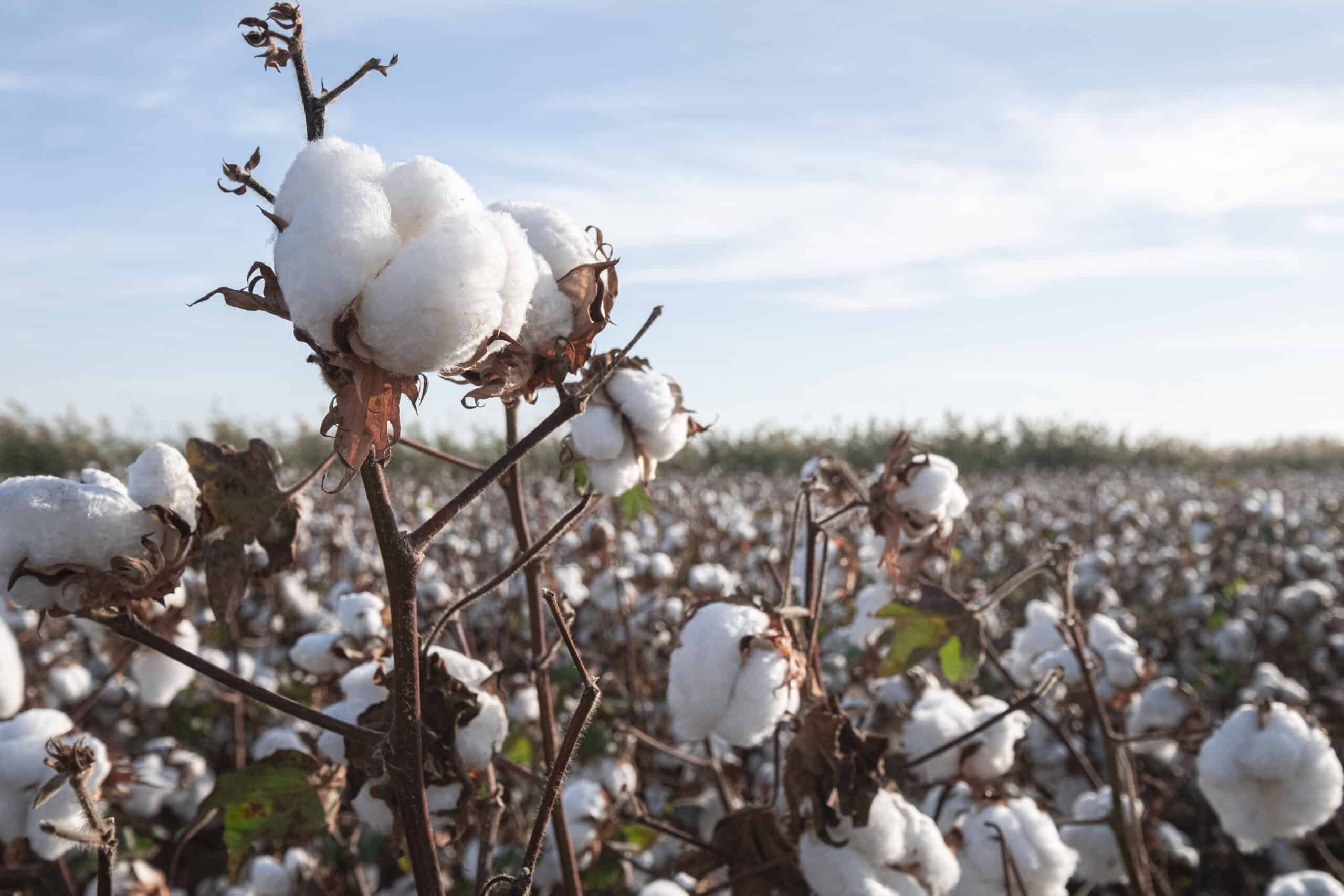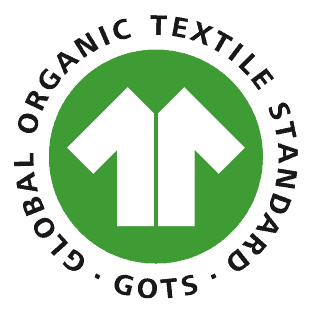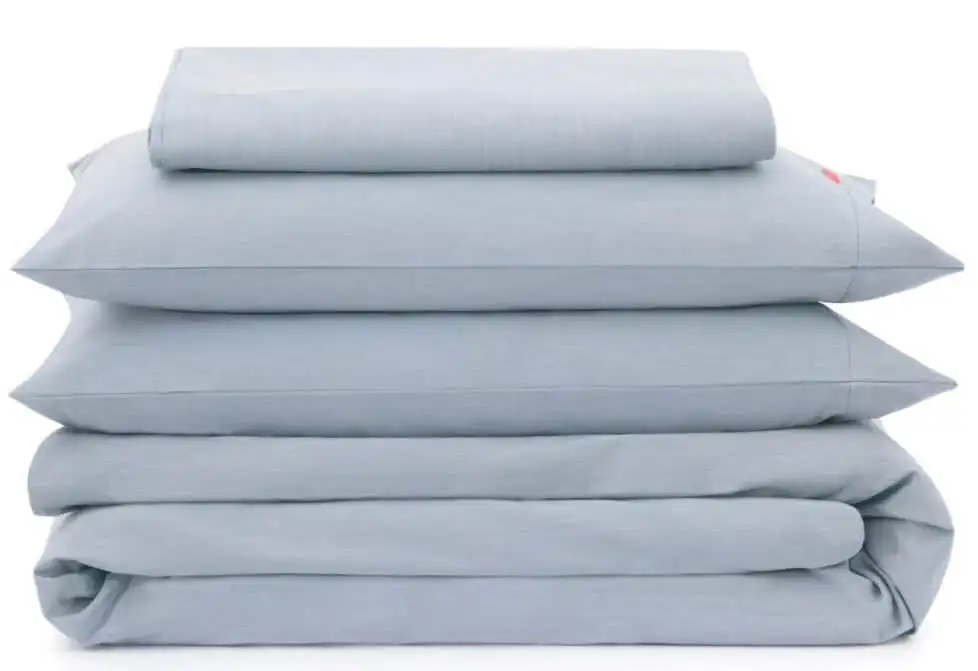- You are here:
- Home »
- Organic Bedding »
- Organic Cotton vs. Normal Cotton: What’s the Difference?
Organic Cotton vs. Cotton: What’s the Difference?
Disclaimer: As an Amazon Associate I earn from qualifying purchases.
Organic cotton. It seems to be the ultimate resource when it comes to choosing a non-toxic option for your clothing, bedding, or any fabric.
The big question is whether or not it’s even better than conventional cotton? If it is better, why exactly should we choose organic cotton over conventional cotton? Take a look at our comparison of organic cotton vs cotton:
Why Should You Consider Organic Cotton?
All cotton is grown from the ground, so what makes organic cotton special? The basic necessities of soil, sun, water, and seeds are all used in growing organic cotton. However, with conventional cotton, more “necessary” elements are added to the growth process to keep up with the supply and demand chain.
The seeds may be genetically modified and the ground may have a large variety of chemicals added to it to aid in yield and protection from disease or pests. These extra toxins and chemicals make conventional cotton risky.
Organic cotton is essential for someone trying to have a non-toxic lifestyle. It is a beautiful, quality, functional material all on its own. Many organic farmers are proving that there’s no need for harmful chemicals.

Organic Cotton vs. Conventional Cotton: Water
There’s a lot of talk recently about water usage in the manufacturing process of the material. Some argue that organic cotton uses less water to produce one T-shirt than conventional cotton. Or vice versa.
To untangle these often opposing statements and studies, we have to clarify the conditions. First, the source of information is crucial when it comes to these statistics and big claims. You cannot always trust a second-hand source who may have chosen the “studies” that suit their stance on the matter.
Then, you have to consider where the cotton is grown. The climate, farming method, soil type, and weather history of the area all affect how much water the cotton farmer will use in that particular year.
Because this specific question about water usage is so controversial, we’ve looked at both sides of the story and found legitimate study results to explain our answer. When comparing the amount of water, the Textile Exchange explains that producing a T-shirt would require about 2,168 gallons of water versus just 186 gallons for organic cotton.
They also explain that the real problem is water pollution. The real issue to focus on is not which type of cotton uses less water, but which cotton contaminates the water. It is a benefit that organic cotton uses less water, but even better than that is that the water is not contaminated or hazardous after the production process.
Organic Cotton vs. Cotton: Feel
Conventional cotton is made soft by the chemicals, oils, and waxes added in manufacturing. These things all leave residues that can irritate the skin of chemically sensitive people. Conventional cotton is often harvested by machines to keep up with the rush of high demand. The machine-picked method damages the fibers.
Organic cotton is untouched by chemicals when it’s spun into yarn. It’s usually sized, all using natural oils to help in that process. They use a variety of natural products in manufacturing, including potato starch, low-impact dyes, and earth clays.
The lack of chemicals in all of this aids in maintaining the natural purity and soft texture. Organic cotton is also usually picked by hand. This makes organic cotton softer than conventional cotton because its fibers remain longer.
Read More: What’s the best organic body pillow?
Organic vs Normal Cotton: Durability
The picking and manufacturing method gives us an indication of how durable the cotton will be. Organic cotton is more durable because, as mentioned above, the hand-picking method preserves the longer fibers, keeping them intact and, therefore, stronger. If the fibers were weakened or broken by a machine harvester, you would lose some of the natural durability of the fiber.
Second, organic cotton is not bleached or treated with toxic chemicals during manufacturing. This helps to avoid further fiber damage, making it a much more durable material than conventional cotton.

Organic Cotton vs. Cotton: Price
Conventional cotton is in high demand because of the large quantities needed for production worldwide. The chemical fertilizers, GMO seeds, and manufacturing chemicals needed to produce the necessary yield are all quite expensive. However, because there is so much business for conventional cotton, they don’t need to charge an exorbitant amount for it.
Organic cotton, on the other hand, does not normally match the yield of a conventional cotton field. Therefore, organic cotton growers have to charge more for their produce. Although the natural fertilizers and products used in manufacturing may be cheaper, organic cotton’s economic market forces most farmers to raise the price. Quality doesn’t come cheap!
FAQs
Is Organic Cotton More Breathable?
Yes, because the natural fibers are longer, they allow for breathability while maintaining the material’s strength. The texture and breathable quality of the organic cotton will make it ideal for bedding even in the summer months.

Does Organic Cotton Peel?
No, organic cotton does not peel. Unlike synthetic fabrics, organic cotton is made from natural fibers that are less likely to break down over time. This makes it a more durable choice for clothing and other fabrics.
Does Organic Cotton Shrink?
It can shrink up to 10% if exposed to high temperatures. For instance, if you were to dry your organic cotton sheet in the dryer on a hot setting. Organic cotton is not chemically treated to prevent shrinkage, so it is possible to experience shrinkage. You can avoid shrinking as much as possible by following the care labels and air drying the products.
Read More: How to wash organic cotton bedding?
Is Organic Cotton Better for Your Skin?
Yes, it contains no chemicals that could irritate your skin. Conventional cotton can irritate someone’s skin simply because of the chemical residues left after manufacturing. Although they try to rinse the cotton, they cannot eliminate all the chemicals.
On top of that, as organic cotton is softer than conventional cotton, it’s much more delicate on your skin, making it a great choice for people with sensitive skin, children and babies.
Is Organic Cotton Fair Trade?
When we talk about a product or company meeting “fair trade” standards, this means that it promotes or complies with improving the living and working conditions of smallholder farmers and their employees. This extends to safety regulations, fair payment, and working conditions.
If you want to support brands that use Fairtrade organic cotton, take a look at Coyuchi or Aizome Bedding. These organic bedding brands are sure to deliver on product quality for you and quality of life for their suppliers.
Read More: Cotton and Microfiber Sheets Comparison
Is Organic Cotton Healthier Than Normal Cotton?
Yes, as mentioned before, chemical residues are often a big problem for people who use conventional cotton products. Many people suffer from skin reactions or allergy symptoms these residues can have. Organic cotton is healthier because of the clean, non-toxic growth, harvesting, and manufacturing processes.

Is Organic Cotton Eco-Friendly?
Organic cotton is grown from the ground. It should naturally become part of the ecosystem – not disturb it. Organic cotton is eco-friendly because it does not disrupt the natural processes in the soil, water, or air around the cotton field.
As its cultivation and manufacturing process excludes harsh chemicals, it avoids soil and water pollution and protects the health of people involved in the manufacturing process.
Read More: Why should you wash your new sheets?
Is Organic Cotton Better?
Organic cotton is definitely better than normal cotton. As you’ve noticed, there are a few major problems with the process of growing and manufacturing conventional cotton. Even though organic cotton may not match the yield of conventional cotton, it has proved to supersede the “benefits” of conventional cotton.
By avoiding the use of inorganic fertilizers, herbicides, insecticides or fungicides during the cultivation process, as well as harmful chemicals, such as formaldehyde, during the manufacture, it offers environmental benefits and follows human-healthy practices that we want to support by purchasing organic cotton products.
If you’re interested in switching to organic cotton products, look at our review of the best organic bedding brands for you and your little ones.

How Do I Know The Cotton Is Really Organic?
This article has compared organic cotton to cotton to help you choose the best organic bedding. Many manufacturers claim their products are made of organic cotton, but they don’t have any certificates to prove it. If you’re looking for organic cotton products, ensure they have the GOTS certificate logo on the label.
GOTS (Global Organic Textile Standard) certificate means that the products have been tested and scrutinized for the presence of toxic chemicals throughout the manufacturing process: from the field to the finished products. GOTS certificate gives you the confidence that you’re buying truly organic cotton that is a healthy choice for the environment and for you.
Read More: What are the best organic pillows?
About the Author Kamila Flieger
My name is Kamila, and I'm passionate about researching non-toxic, organic products for the home. I believe it's so important to create a safe and healthy environment for our families, and I enjoy helping others do the same.



